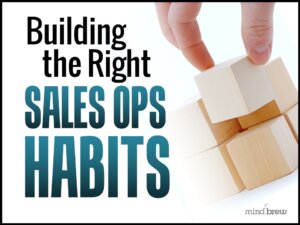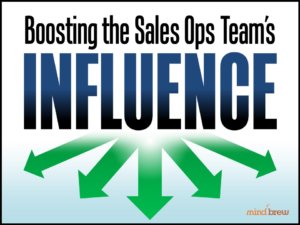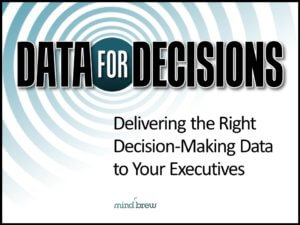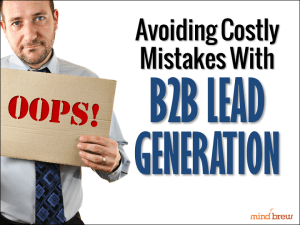Aesop (of Aesop’s Fables fame) once wrote, “Persuasion is often more effectual than force.”
That’s good both good news and bad news for sales ops professionals. It’s good news because, while we often need support from other teams, sales ops rarely has the ability to force those teams to do what we want. Persuasion makes it possible for us to accomplish our goals without force.
But it’s bad news because persuasion is a difficult skill to master.
Sales ops is a highly cross-functional role that requires collaboration with several different departments, particularly sales, marketing, product management, and finance. Each of these teams has unique priorities, goals, and peculiarities. Getting just one of those groups to agree with you on a project can be challenging. And if you need to get them all aligned—well, challenging doesn’t seem like a strong enough word.
For this task, you need to become a master persuader.
About now, you might be groaning inside. After all, if you wanted to spend your time trying to talk people into things, you would have gone into sales, not sales ops. You’re probably a lot more comfortable working with data than making the friendly banter that seems to come so naturally to salepeople.
Whether you like it or not, convincing people to go along with your ideas is a critical part of the sales ops job. Fortunately, you don’t need to be a born salesperson to be good at persuasion. You just need to make sure your logical case contains four key elements.
Elements of a persuasive argument
The most effective reasoning has these things in common:
- Empathy: Start by learning more about the concerns and goals of the people you want to influence. What makes the finance team excited about coming to work? What drives the marketing team bananas? If sales could change just one thing about your organization, what would it be? Once you understand what makes them tick, think about how you can help them achieve their objectives or overcome their pain points.
- Strong Data: This part should be easy for you. Back up your ideas with cold, hard facts. Everyone expects the sales ops team to understand data—lean into that. When you include impactful numbers in your reasoning, it not only makes your rationale stronger, it also builds your credibility as a strategic partner in the organization.
- A Story: Data is good, but most people don’t remember numbers unless they are woven into a compelling narrative. For example, you probably don’t remember how many students were in your first-grade class, but most Americans certainly remember how many bears were in the story about Goldilocks. You encountered both numbers at about the same age, but only one stuck with you. We’re not saying you need to make up something about porridge. But if you can explain the challenge and how your idea can overcome it, that’s much more memorable that just saying something like “15% improvement.”
- Credibility: To explain this one, we’re going to quote another famous ancient Greek. Aristotle said, “Character may also be called the most effective means of persuasion.” When you consistently deliver on your promises, your co-workers will come to trust you. Over time, your reputation as someone who is reliable and knowledgeable will grow. And that in turn will make you even more persuasive.
Learning to incorporate these elements into your conversations with other groups takes time. Be patient with yourself. With practice you will improve. Even a small win can help your teams become better aligned and more effective.
And if you need more help in learning to work effectively with other teams, check out the following resources:
- Building the Right Sales Ops Habits
- Being an Internal Sales Consultant
- Boosting the Sales Ops Team’s Influence
- Delivering Data to Decision-Makers
We can’t force you to become more persuasive. But we hope we’ve persuaded you to at least give it a try.















